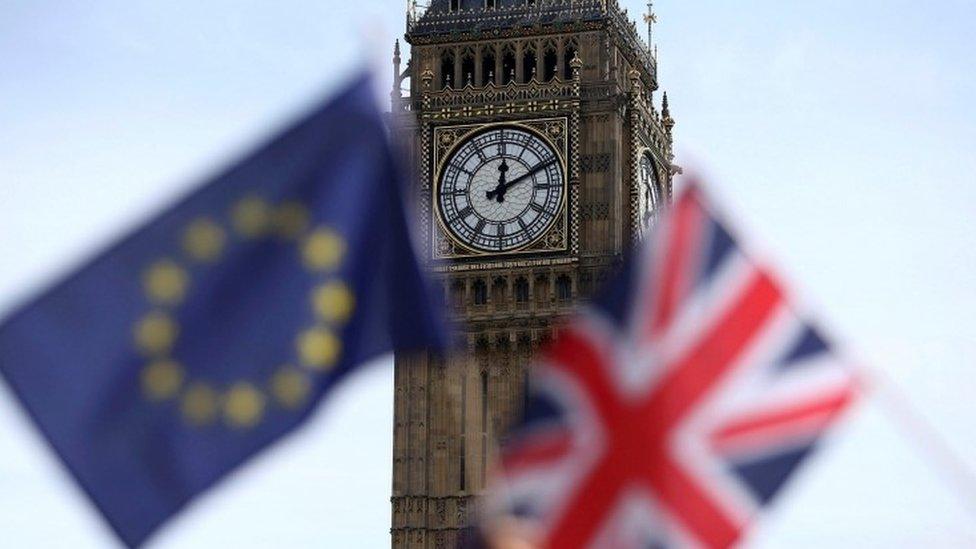No-deal Brexit: A costly prospect for many consumers and firms
- Published
- comments
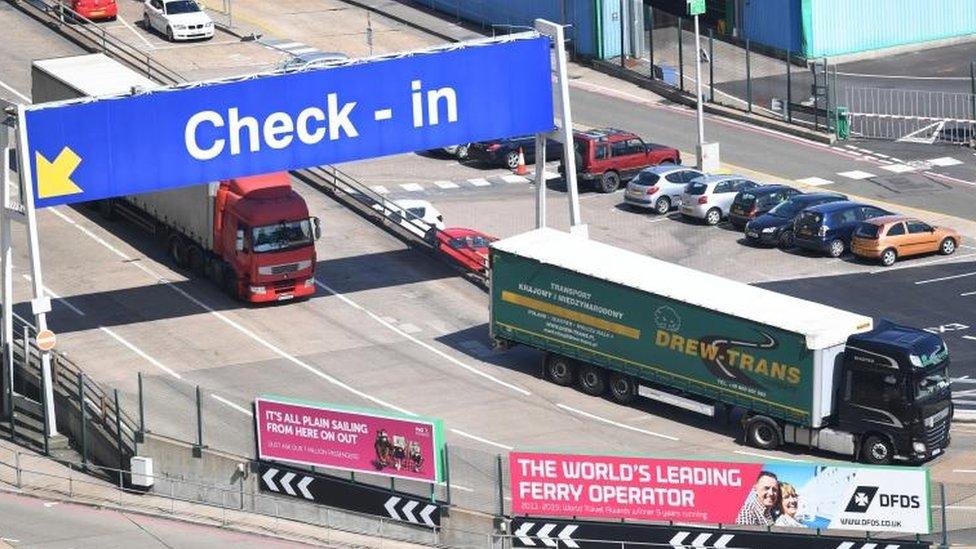
Britain leaving the European Union has been described as akin to attempting to remove an egg from an omelette.
Today's "no deal" papers reveal the complicated exercise could carry significant costs for consumers and businesses if Britain and the EU fail to agree on a transition period and a subsequent trading agreement.
Those increased costs would be very likely to have a negative impact on the economy and could mean higher prices in the shops as firms pass on the higher costs of doing business.
Which is why the government keeps insisting that it is pushing for a "successful" deal with the EU.
And the EU says that is also its preferred outcome - Britain is a major customer for many EU goods and services.
Many firms I speak to are not preparing for a "no deal" because they simply do not believe that it will happen, such is the disruption that could be caused.
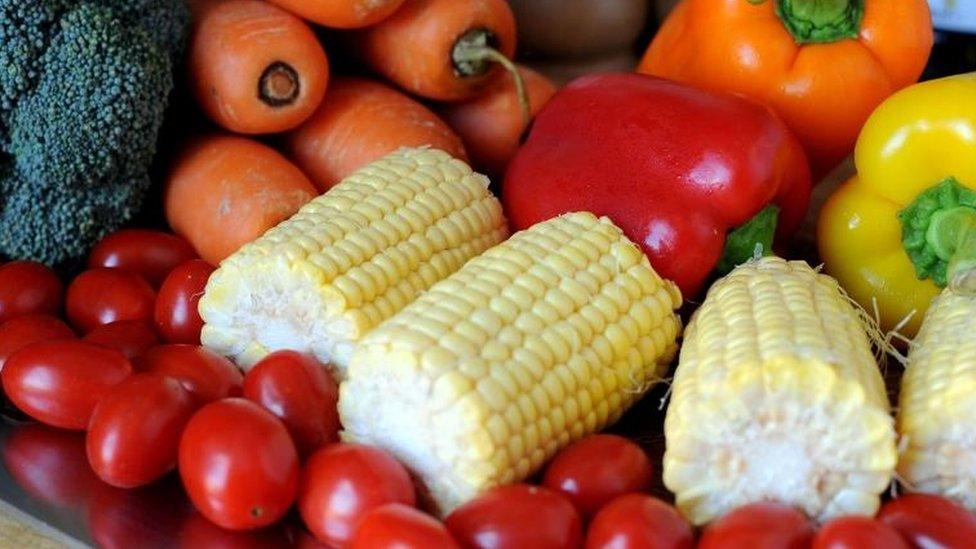
Food imports and exports would be particularly affected by a no-deal scenario
The details on "no deal" published by the government are sobering.
Just take one - trade across the border between the UK and the EU post-Brexit if there is no agreement.
If there is no deal and Britain reverts to "third country" status, the government has provided a long list of preparations firms that export and import to and from the EU will be required to undertake.
Customs declarations would be needed, tariffs (import and export taxes) "may also become due" and the government also says firms are likely to need to invest in new computer systems to track goods.
"If the UK left the EU on 29 March 2019 without a deal there would be immediate changes to the procedures that apply to businesses trading with the EU. It would mean that the free circulation of goods between the UK and EU would cease," the government says.
The import and export of food would be particularly affected.
Food companies would have to register with a new (and as yet non-existent) UK authority which would be needed to replace the EU's "TRACES" system that tracks the trade and certification process for animals, food, feed and plants across Europe.
"The new burdens potentially facing food and drink exporters and importers set out today will frighten many SME [small and medium-sized] food businesses," the Food and Drink Federation's chief executive, Ian Wright, said.
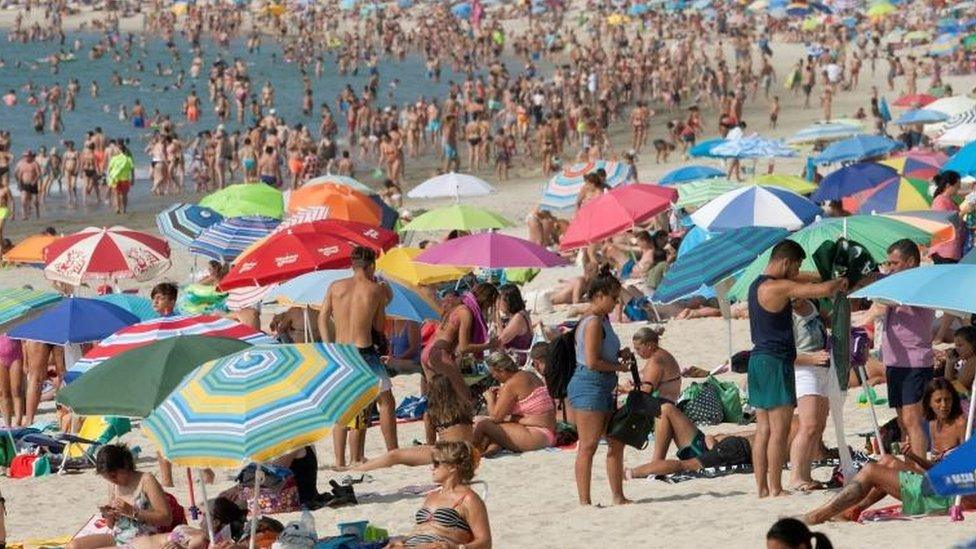
Holidays in Europe could become more expensive
That is the crux of the problem.
Leaving the single market and the customs union without a deal means significantly higher barriers to trade with the EU.
And higher costs for firms that are engaged in that trade.
Consumers could find going on holiday and making card payments for EU products more expensive because Britain would no longer be part of the EU's payments process.
Some of the overall costs to the economy might be mitigated over the medium term by increased trading opportunities with nations outside the EU.
And the government has signalled that in some areas - such as the need for upfront payments of VAT on imports - it is doing its best to smooth the impact on cash flow by allowing for delayed payment systems.
That has been welcomed by business groups.
But what is key from the documents published today is pretty straightforward.
The costs of a no-deal situation are likely to be substantial.
And consumers and businesses would be the ones paying the bill.
- Published23 August 2018
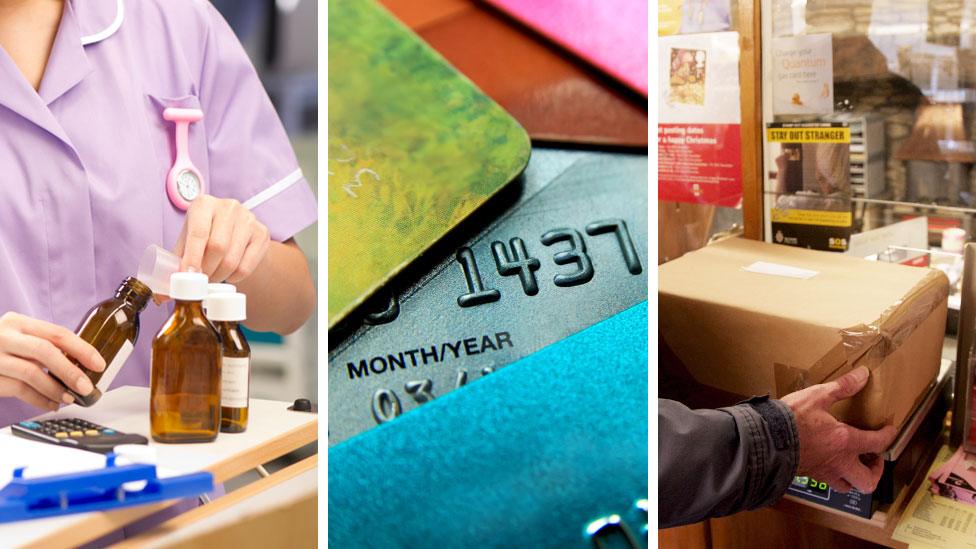
- Published20 July 2018
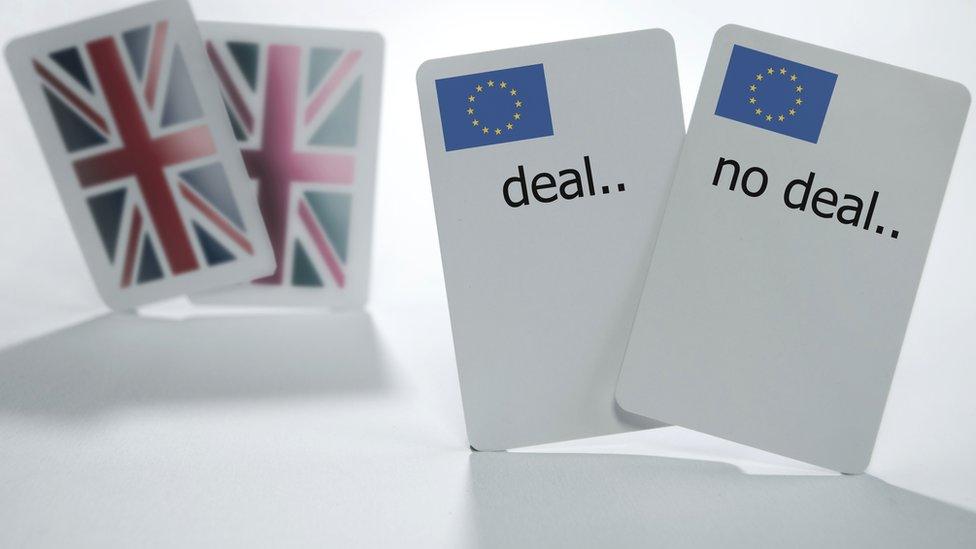
- Published21 August 2018
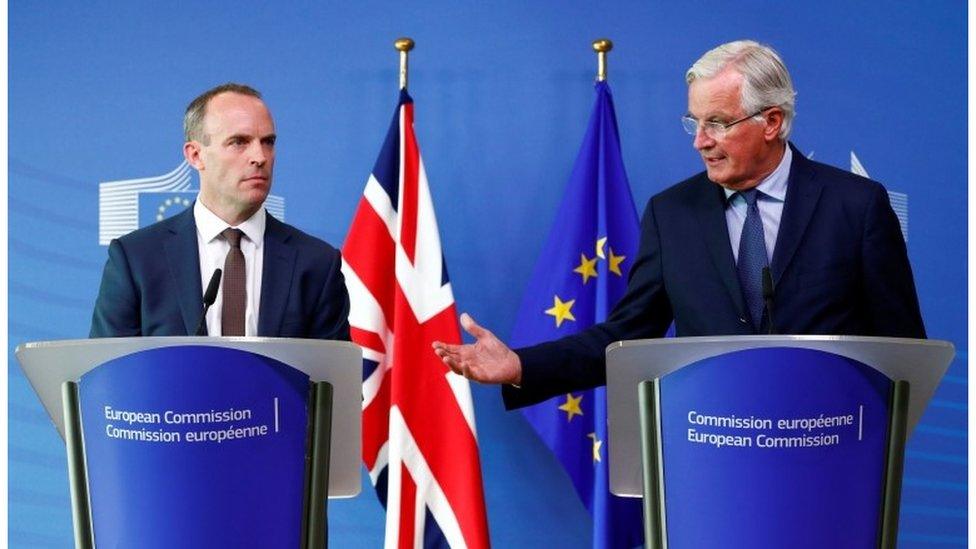
- Published22 August 2018
